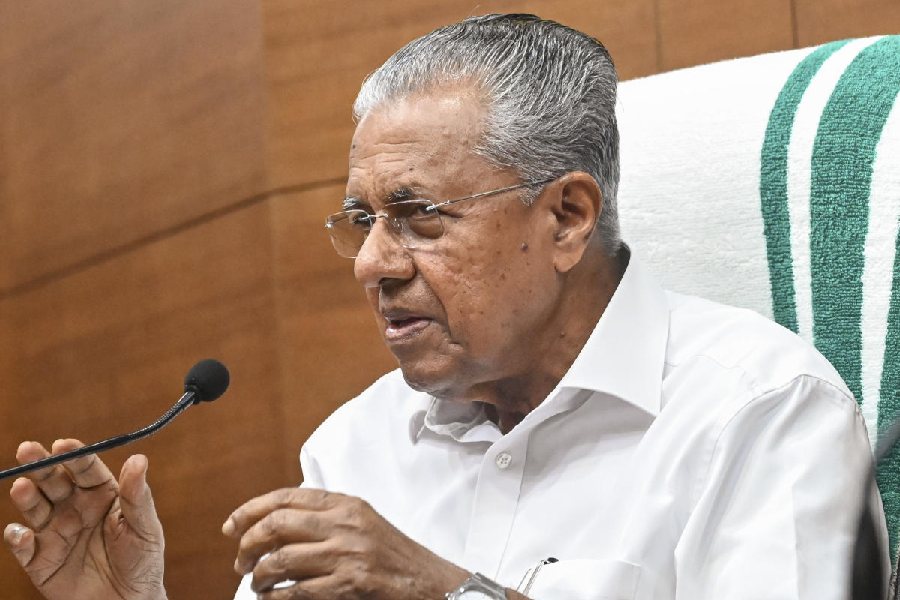Two months ago, Javier Barajas hosted former President Donald Trump at Il Toro E La Capra, one of five restaurants he owns in Las Vegas.
Barajas, 65, had eagerly backed Hillary Clinton when she ran for President in 2008; he previously welcomed President Joe Biden to one of his other restaurants. But he has thrown his support to Trump this year for one major reason: skyrocketing prices on everything from the ingredients in his entrees to the gas for his catering truck.
His nephew, Justin Favela, was crafting a piece of traditional Mexican folk art from tissue paper when he began receiving angry and confused texts from friends and family who had seen the news of Trump’s visit on social media and the nightly news.
Favela, a 38-year-old artist, has economic concerns that resemble his uncle’s. Higher rents, increased costs for the supplies to create his art and student loans leave him stressed about his future.
But he will cast a reluctant vote for Vice-President Kamala Harris, spurred primarily by Trump’s increasingly dark and racist portrayals of immigrants like those in his own family.
“I work 12 hours a day just to be alive — just to be able to pay rent. I can’t even afford a house. The Democrats have been weak,” Favela said, describing how the cost of a gallon of glue, which is essential for his work, has doubled in the last three years.
“But gun to my head I would not vote for Trump,” he added. “To still vote for somebody that called everybody from Mexico rapists and has these terrible violent border policies shows that you’re not interested in supporting humanity and helping people, you’re interested in the bottom dollar.”
The former President has braided his economic pitch that Americans would be better off under a second Trump administration to increasingly vitriolic and openly nativist attacks on undocumented immigrants. Appealing to voters of colour, he has frequently claimed migrants are taking jobs and housing that might otherwise go to Black and Latino Americans, accusations that are not supported by available data. In rally after rally, he has cast migrants as a violent invading force responsible for degraded life in America’s towns and cities, and promised “the largest mass deportation operation in history.”
The message is registering among Nevada’s Latino voters in the closing weeks of the campaign. Interviews with nearly two dozen such voters, of various ideological stripes, reveal similar rifts between friends and family over whom to support. For some, despite the financial concerns that might otherwise sway them towards Trump, his incessant attacks on immigrants are too much. Still, many appear prepared to look past his escalations and back a candidate they believe will help their livelihoods.
Barajas’s frustrations capture the potency of the Republicans’ economic argument. Nevada’s service-heavy economy was crushed by the pandemic, and while the recovery has been strong, the state still has the highest unemployment rate nationally and some of the highest prices for gas and groceries.
“I used to pay three years ago, $32 for a case of eggs. Now it’s about $100” for the same crate of about 200 eggs, said Barajas, who arrived in the US from Mexico in 1978 illegally and became a citizen in the early 1990s.
He added: “I don’t trust Trump 100 per cent, but much better than Kamala. I know he is going to make mistakes. I know he is not going to do everything he says, but I know he is going to do much better for this country.”
Latino voters have been a key part of the coalition that has propelled Democrats to success in Nevada for the last 20 years. Harris’s campaign has promoted economic proposals that they believe would bring down the cost of staples, as well as housing. Nationally, the campaign has run millions in Spanish language television advertising and said it would spend close to $3 million in October on Spanish-language radio advertising. They didn’t offer numbers specific to Nevada.
New York Times News Service











